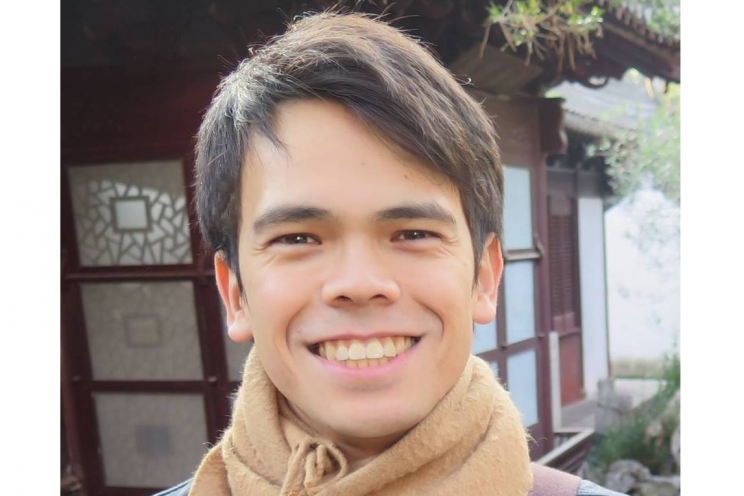Runner in Stanchart Marathon died from sudden cardiac arrest: State Coroner

A 28-year-old Briton runner who collapsed during the Standard Chartered Marathon in Singapore last December died from a sudden cardiac arrest due to natural causes, a Coroner’s Inquiry has found.
In the Coroner’s Court on Thursday (4 May), State Coroner (SC) Marvin Bay said that taken into totality, the reports by inspectors and the pathologist support the clinical finding into John Ying Wah Gibson’s death from a natural cause.
Gibson, a British national from Hong Kong, had came to Singapore for a conference on 29 November last year and stayed on till December to participate in the 21.1km half-marathon.
On 4 December 2016 at about 4.36am, Gibson had started running the half marathon, but collapsed at about 6.24am when he was at the 20.3-kilometre mark. A fellow marathon runner, who was behind Gibson, had seen him staggering and helped him to the ground.
According to State Counsel N K Anitha’s opening address, Gibson was unresponsive and pale. His eyes had rolled back and his mouth gaped open. The fellow runner shouted for help and a volunteer photographer, a trained first aider, ran over to perform Cardio Pulmonary Resuscitation (CPR) on Gibson. He noted that Gibson had no pulse and that his skin was cold.
A security officer was told of the incident two minutes later, and she immediately informed her supervisor. An on-duty roving first aider who was notified a minute later immediately reported the case to his medical team. The first aider reached Gibson’s side at about 6.29am where he asked for an automated external defibrillator. He took over CPR from the volunteer photographer until the ambulance arrived.
Meanwhile, the security supervisor who had gone to Gibson, used his walkie-talkie to inform the medical team and to ask the command post to despatch an ambulance. He later went to the nearest available ambulance’s location and cleared the way for the ambulance.
When the ambulance arrived at 6.34am, paramedics took over care of Gibson. He was conveyed to Singapore General Hospital at 6.45am where efforts were made to resuscitate him.
Despite all efforts however, Gibson was pronounced dead at 8.50am.
Senior Consultant Forensic Pathologist Dr Marian Wang, who did an autopsy on Gibson, certified that the cause of death was sudden cardiac death due to natural causes.
She said that there was no obvious natural disease process of the type that could cause death, and that Gibson’s heart had no evidence of abnormalities. She ruled out heatstroke as Gibson’s body had been cold to the touch when he collapsed and his temperature was 36.1 degrees celsius when measured at SGH.
Heat stroke patients typically have a body temperature of 40 degree celsius or more.
Commenting on race participants, SC Bay said that runners should prepare themselves adequately before a race to mitigate the risk of injuries. He said that pre-race health screenings, a good night’s rest, hydration and a clean bill of health were needed for runners to safely compete in a race.
“Runners should listen to their own bodies to recognise worrisome symptoms and slow down or stop when necessary during the race to prevent over-exertion,” added SC Bay.
SC Bay said that organisers should also provide more in-depth practical advice to race participants, especially to those who fly in specially to participate as they may not be used to the climate.
On this, Gibson’s father, John Robert Gibson, had the same to add. Gibson senior, 65, who was present at the hearing, pointed out that the health tips and information provided to participants on the website was rather general and didn’t raise the particular climate conditions of a race in Singapore.
Noting that it was his son’s first race in Singapore, the Hong Kong-based part-time lecturer said in court, “I don’t think he realised the difference of the climate and the fact that he would have to get out of bed at 2.30 in the morning for the run. All these factors weighted the dice against him.
“Talking about this now will not bring him back but one of the things the court could consider is the extent of which the organisers could give advice.”
Geoff Meyer, Managing Director of IRONMAN Asia, which organised the race, extended his “deepest condolences” to the Gibson family.
“The safety of our runners is our utmost priority and the team regularly reviews safety and medical response plans with our partners and relevant authorities. We urge all runners to prepare themselves adequately for the race, and will continue to provide as much information and advice to help them achieve their race aspirations.”
Speaking to the media after the findings were delivered, Gibson senior said that his son’s slower speed towards the end of the race was “an indication of trouble”. His son’s RFID tag showed that his speed began at 4.40 minutes per kilometre but slowed to 6.60 mins/km before his collapse.
Gibson, who has an elder brother and younger sister, was a keen participant of triathlons but was not experienced at long-distance running, said his father.
“I don’t think he understood well enough. If he had, he might have stopped or walked and be alive today,” said Gibson senior.



